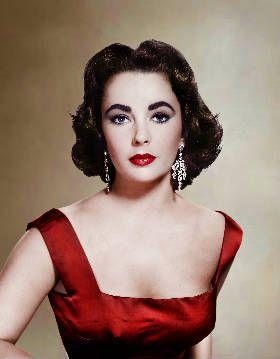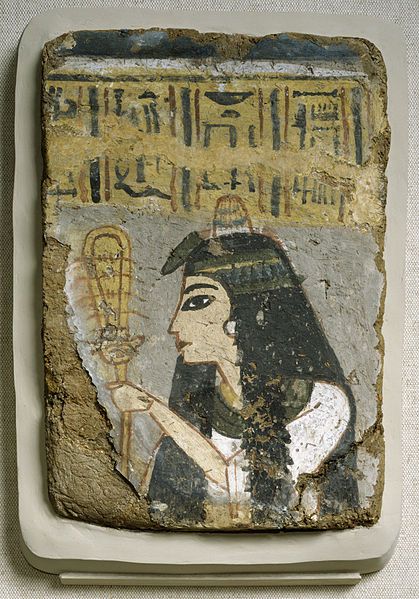 by Eddie Deezen.
by Eddie Deezen.In spite of a small microcosm of angry feminists, the "beauty industry" is a billion-dollar (trillion, maybe?) industry in America and around the world.
Call it vanity, if you must, but spending quality time in front of a mirror is a daily ritual millions of women can't do without, whether they're preparing for an average day at work, a big event, or a date with that special someone. It all goes back to the ancient Egyptians, who were the first women to wear makeup.
In a way, the basic motive back then was the same as it is today- just like modern day supermodels, the well-to-do women of ancient Egypt wanted to look their best and saw the careful application of face-paint as a means to that end.
 But
unlike today's modern women, they weren't trying to impress that cute
guy at work or the guy at that important job interview. And the Egyptian
women weren't trying to catch the eye of the burly construction foreman
working on the pyramids or the local pharoah either. Their sights were
aimed a little higher. They were trying to impress the gods.
But
unlike today's modern women, they weren't trying to impress that cute
guy at work or the guy at that important job interview. And the Egyptian
women weren't trying to catch the eye of the burly construction foreman
working on the pyramids or the local pharoah either. Their sights were
aimed a little higher. They were trying to impress the gods.Archeological evidence shows the Egyptian ladies were dolling themselves up as early as 4000B.C. This was mainly, or at least in good part, to please the gods, as the women felt their appearance was directly related to their spiritual worth. So the Egyptians created the first cosmetics (no word on whether they received makeovers at malls along the Nile).
They applied eye makeup called mesdement (from the ancient Egyptian word <>msdmt) a mixture of copper and lead ore, around their eyes. Green shades went on the lower eyelids; black and dark gray were applied to the lashes and upper eyelids. Dark colors were said to ward off "evil eyes".
To complete the ornate look around the eyes, they added almond shapes of dark-colored powder (later called kohl) that might have been a combination of ingredients such as burnt almonds, oxidized copper, copper ores, lead, ash, and ochre (think Johnny Depp as Captain Jack Sparrow or Keith Richards as Keith Richards). Kohl was believed to have medicinal benefits as well.
Although these earliest beauty products the ladies put on were originally intended to please the gods, it doesn't take much imagination to consider the effect these doses of makeup had on the local Egyptian men (probably similar to the first cave girl who realized the effect her short animal skin dress had on the cave men and boys she walked by).
The connection between beauty and spirituality remained for centuries, until the Romans gained power. The Romans adopted many of the Egyptians' cosmetic formulas, but their primary motive was to improve their appearance for each other (especially the Roman men). The "god factor" did not enter into it.
It brings one that most precious of all commodities: admiration. And in the end, isn't that what we all want?

No comments:
Post a Comment